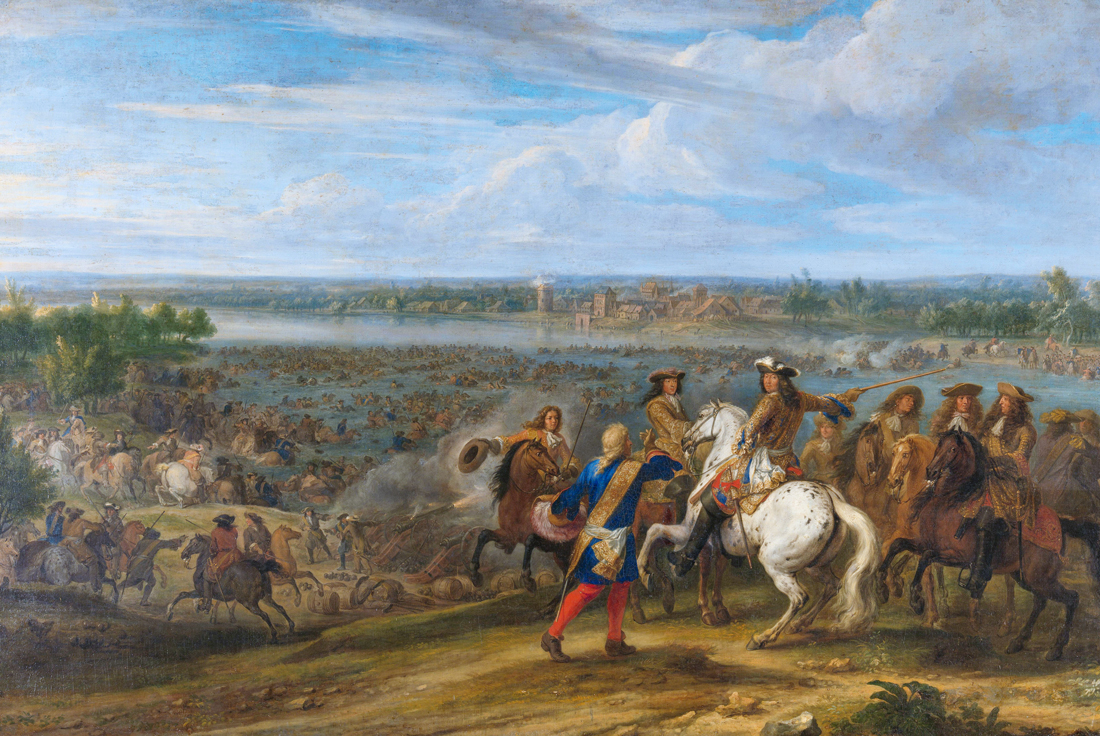
The state of Illinois, and indeed the broader American political landscape, recently mourned the passing of a true public servant, former Illinois Governor Jim Edgar, who died on Sunday at the age of 79. A popular two-term Republican, Edgar was widely credited with steering Illinois into an era of enhanced financial stability during the 1990s, a period marked by tough decisions and principled leadership. His family confirmed his passing, stating he died from complications related to his treatment for pancreatic cancer, a diagnosis he had publicly shared earlier this year, ending a remarkable journey of public service.
Governor Edgar’s tenure, spanning from 1991 to 1999, was characterized by an unwavering commitment to fiscal responsibility and an ardent dedication to the public good. His moderate Republicanism, a vanishing breed in today’s increasingly polarized environment, allowed him to forge bipartisan consensus and implement policies that had a profound and lasting impact on the state’s educational and financial institutions. He leaves behind an indelible legacy of integrity and effective governance that continues to be lauded by a wide spectrum of current and former political figures, transcending traditional party lines.
This in-depth article will meticulously explore the distinguished career of Jim Edgar, from his formative years and early political ascent to his defining leadership as governor, and his influential post-gubernatorial contributions. We will delve into the critical challenges he confronted, the legislative battles he adeptly navigated, and the steadfast personal attributes and enduring principles that shaped his profound influence on Illinois. Through this examination, we aim to paint a comprehensive picture of a statesman whose contributions resonated far beyond his time in office, cementing his place in the state’s history.

1. **A Statesman’s Passing: The End of an Era** The news of former Illinois Governor Jim Edgar’s passing on Sunday, confirmed by his family, marked a profoundly solemn moment for the state he served with such unwavering distinction. At the age of 79, Governor Edgar, whose public service spanned decades, succumbed to complications stemming from his treatment for pancreatic cancer. He had courageously battled this illness since publicly disclosing his diagnosis earlier this year, facing it with the same quiet determination that characterized his political career.
A family statement conveyed the deep sorrow of his loved ones, expressing profound gratitude for the outpouring of support and kindness shown to Jim and their family over recent months. “It is with heavy hearts we share the news that our beloved husband, father and grandfather Jim Edgar passed away this morning in Springfield from complications related to treatment for pancreatic cancer,” the statement read. This poignant message resonated deeply with many, underscoring the personal loss alongside the public’s sorrow for a leader who touched countless lives.
Governor Edgar had been hospitalized due to a reaction to his cancer treatment, bringing a quiet and dignified end to a life wholly dedicated to the betterment of Illinois. His passing prompted immediate tributes from across the political spectrum, reflecting the broad respect he commanded. Illinois Governor JB Pritzker, a Democrat, was among the first to announce that flags across the state would fly at half-staff in Edgar’s honor, a testament to his profound impact and unifying presence.
Pritzker, who openly regarded Edgar as a friend and mentor, underscored the enduring values that defined Edgar’s public life. “Now more than ever, we should channel that spirit and resolve to live as Governor Edgar did: with honesty, integrity, and an enduring respect for all,” Pritzker remarked in his statement. He further asserted that Edgar “will live on in the incalculable number of lives he touched and in the stronger institutions he helped build,” affirming the lasting quality of his contributions to the fabric of Illinois.

2. **Early Political Roots: From State Legislator to Secretary of State** Jim Edgar’s distinguished journey into the heart of Illinois politics commenced long before his eventual rise to the governorship, built upon a methodical progression through various state offices that provided him with invaluable practical experience. He began his public service as a state legislator, representing his constituents in the Illinois House of Representatives from 1976 to 1979. This initial role offered him a foundational understanding of the complex legislative process and the intricate needs of local communities.
Following his tenure in the House, Edgar ascended to the critical and highly visible position of Illinois Secretary of State, a role he would hold with considerable distinction for a full decade, from 1981 to 1991. This extended period allowed him to oversee a significant statewide department, directly engaging with millions of citizens and managing vast administrative responsibilities. His meticulous approach to public service in this capacity earned him a reputation for efficiency, professionalism, and unwavering dedication to the public.
His decade as Secretary of State was instrumental in cultivating his statewide name recognition and building a broad base of public trust and support across Illinois’ diverse communities. This prolonged period of administrative leadership was pivotal, preparing him for the immense responsibilities that awaited him in the state’s highest office. It was during this time that he firmly established himself as a moderate Republican, a political identity that would prove crucial in his subsequent electoral successes and his ability to appeal to a wide electorate.
This robust political foundation, meticulously constructed upon a track record of effective leadership and demonstrable public service, positioned Jim Edgar as an exceptionally formidable and widely respected candidate for governor. His pragmatic approach and proven ability to manage large state operations resonated deeply with voters, setting the stage for his successful gubernatorial campaign and the transformative period of leadership that would follow.
3. **The Governorship: Guiding Illinois Through Financial Straits** Upon his election as governor in 1990, Jim Edgar was immediately confronted with an Illinois state government in severe financial disarray. The state faced an alarming deficit, burdened by hundreds of millions of dollars in debt, and struggling profoundly amidst a recession. This dire economic situation meant the state was frequently paying its bills months late, signaling a deep-seated fiscal crisis that demanded immediate and decisive action from its new leader.
These were not merely challenging circumstances; they were formidable obstacles that required courageous, and often politically unpopular, decisions. Undeterred, Governor Edgar approached this fiscal quagmire with a clear and unwavering vision for financial recovery and long-term stability. His leadership was tested from his very first days in office, as he immediately set about implementing measures designed to bring the state back from the brink of insolvency.
Amidst this daunting economic climate, Governor Edgar demonstrated remarkable political resolve by pushing legislators to implement substantial cuts to the state budget. This involved making exceptionally difficult choices, including orchestrating state employee layoffs and reducing funding for popular public programs. Such measures, while rarely politically expedient, were deemed absolutely essential by Edgar for the state’s long-term financial health and solvency, underscoring his commitment to responsible governance above all else.
His two terms as the state’s 38th governor, spanning from 1991 to 1999, were consequently defined by a steady hand, meticulous fiscal management, and an unyielding focus on achieving long-term solutions over short-term political gains. He skillfully navigated complex legislative landscapes, often facing considerable resistance from various factions, but ultimately succeeded in guiding Illinois towards a period of significantly greater financial stability. This era of fiscal prudence became an undeniable cornerstone of his gubernatorial legacy, showcasing his extraordinary capacity for effective crisis management and principled leadership during a critical period.

4. **A Fiscal Legacy: The Permanent Income Tax Surcharge** Among Governor Edgar’s most significant and enduring policy achievements was his successful campaign to make a previously temporary income tax surcharge a permanent fixture of the state’s revenue system. This bold move was not merely a legislative initiative; it stood as a central promise of his gubernatorial campaign, specifically aimed at guaranteeing a stable and reliable source of dedicated funding for Illinois’ perennially under-resourced public schools. This represented a fundamental and strategic shift in the state’s approach to fiscal policy and educational investment.
The effort to establish the surcharge as permanent was fraught with political complexities and required considerable negotiation and persuasion within the often-divided state legislature. Despite the inherent difficulties and potential political fallout associated with advocating for any form of tax increase, Governor Edgar steadfastly championed the measure. He consistently articulated its critical importance, emphasizing its direct benefits for enhancing public education and ensuring the overall financial health and operational capacity of the state.
His unwavering resolve and political acumen were ultimately instrumental in securing the passage of this landmark legislation, which solidified a vital, predictable revenue stream for public institutions. This policy had a profound and transformative impact on public education funding throughout Illinois, providing schools with essential financial predictability that allowed for better planning and investment. It remains a testament to Edgar’s strategic foresight and his remarkable ability to translate ambitious campaign promises into tangible, lasting legislative victories that benefited countless citizens.
The permanent income tax surcharge continues to be a key component of Illinois’s fiscal framework, demonstrating the long-term vision of his administration. It reflected his deep commitment to public education and his pragmatic approach to state solvency, acknowledging that vital public services require consistent, adequate funding. This single policy decision cemented his reputation as a governor willing to make tough, principled choices for the collective good, rather than succumbing to short-term political pressures.

5. **A Surprising Departure: Why Edgar Didn’t Seek a Third Term** In 1997, at a point when his public approval was exceptionally high, Governor Jim Edgar delivered a surprising announcement that sent ripples throughout Illinois politics: he would not seek a third term in office. This decision bewildered many seasoned political observers, especially given his undeniable popularity and what appeared to be a clear, unobstructed path to another re-election. His moderate political stance and demonstrably successful governance had garnered him widespread support, exemplified by his impressive victory in 101 out of 102 counties during his re-election campaign, including heavily Democratic Cook County.
The Republican Party, keenly aware of his electoral strength and desire to maintain control of the governorship, actively sought to persuade him to reconsider his decision and run for office again. These earnest efforts included significant attempts to draft him for bids for the U.S. Senate, and even another term as Illinois governor, underscoring his perceived indispensability. However, Governor Edgar remained steadfast in his conviction, choosing instead to step away from the demanding arena of electoral politics despite overwhelming public and party encouragement.
His refusal to capitalize on his immense popularity for further political advancement further solidified his public image as a leader driven by deeply held principles rather than personal ambition or the allure of prolonged power. This unprecedented decision showcased a statesman who possessed the rare wisdom to know when to gracefully transition from active governance, opting to leave office entirely on his own terms and with his impeccable reputation for integrity fully intact. Such a move is exceptionally rare in modern politics, elevating his stature even further.
This surprising departure remains a highly notable and often-discussed chapter in his political narrative, emphasizing his unique and principled approach to public service. It underscored his belief in the importance of rotation in office and his commitment to allowing new leadership to emerge. By stepping aside, Edgar consciously chose to prioritize a dignified exit over clinging to power, reinforcing his legacy as a selfless public servant dedicated to the health of democratic institutions.
6. **Beyond the Office: Post-Governorship Contributions** Even after stepping down from the demanding responsibilities of the governor’s mansion in 1999, Jim Edgar remained a remarkably active and influential figure in public life, steadfastly dedicating his time and extensive expertise to various public and academic endeavors. He seamlessly transitioned into the academic sphere, taking on esteemed teaching roles and serving as a resident fellow at prestigious institutions, eager to share his wealth of practical governmental experience. For instance, he was a distinguished fall 1999 resident fellow at the John F. Kennedy School of Government at Harvard University, imparting invaluable insights to future generations of leaders and policy makers.
Beyond the classroom, Edgar extended his unwavering commitment to public service through significant leadership roles within prominent non-profit organizations dedicated to civic betterment. He notably served as president emeritus of the Abraham Lincoln Presidential Library Foundation, an institution of immense importance dedicated to meticulously preserving and vigorously promoting the enduring legacy of one of America’s most iconic and revered figures. This crucial role allowed him to contribute profoundly to the cultural and historical enrichment of both Illinois and the wider nation, connecting past leadership with contemporary civic engagement.
These varied post-governorship activities vividly reflected his enduring passion for education, the meticulous study of history, and the unwavering pursuit of good governance principles. He continued to be a highly respected and frequently sought-after voice in Illinois politics, often consulted for his sagacious wisdom, nuanced perspective, and institutional memory on a myriad of state issues. His conscious decision to continue contributing meaningfully to public life, deliberately outside the direct electoral arena, powerfully demonstrated a lifelong dedication to the betterment of society.
In 2012, his commitment to fostering future leadership and bipartisanship took a concrete form with the establishment of the Edgar Fellows Program at the University of Illinois System’s Institute of Government and Public Affairs. This initiative, designed to develop young leaders in Illinois, explicitly aims to foster cooperation and bridge political divides, proving that his influence extended beyond his time in formal office. This program embodies his vision for a more collaborative and effective political landscape, solidifying his role as a respected elder statesman whose dedication to civic health never truly waned.

7. **Fostering Bipartisanship: The Edgar Fellows Program’s Enduring Legacy** After stepping down from the demanding responsibilities of the governor’s mansion in 1999, Jim Edgar remained a remarkably active and influential figure in public life, steadfastly dedicating his time and extensive expertise to various public and academic endeavors. Beyond his roles at prestigious institutions like Harvard’s Kennedy School of Government and the Abraham Lincoln Presidential Library Foundation, Governor Edgar’s commitment to fostering future leadership and bipartisanship found a powerful new expression in 2012 with the establishment of the Edgar Fellows Program.
Housed within the University of Illinois System’s Institute of Government and Public Affairs, this initiative was conceived with a singular, crucial purpose: to cultivate the next generation of Illinois leaders. It explicitly aimed to foster cooperation and bridge the often-entrenched political divides that can hinder effective governance. This program allowed Governor Edgar to extend his profound influence far beyond the immediate confines of the governor’s office, solidifying his role as an influential elder statesman.
The program brought together a diverse group of participants, including former and current Illinois state legislative staff, elected officials from various levels of government, and other burgeoning leaders from across the state. Through this initiative, Edgar actively sought to instill a spirit of collaboration and mutual understanding among individuals who might otherwise find themselves in opposition. His vision for a more collaborative and effective political landscape truly embodied his own governance style, which was marked by consensus-building.
The transformative impact of the Edgar Fellows Program is perhaps best encapsulated by the testimonials of its participants. Lieutenant Governor Juliana Stratton, herself an alumna from the 2016 cohort, spoke glowingly of Edgar’s lasting legacy. She lauded him as “a man of principle and a passionately dedicated civil servant,” underscoring his unique ability to “see past political divides and emphasized the importance of unity in leadership by making a point to always extend his hand across the aisle.”
Stratton further noted that Governor Edgar was “practical, gave great advice, and did everything he could to build up the next generation of future leaders so that Illinois can continue to grow.” These sentiments were echoed by former Representative Ray LaHood, a Republican who also contributed to the program. LaHood expressed deep appreciation for Edgar’s unwavering commitment to “compromise and bipartisanship,” a core tenet of the program’s curriculum and a powerful reflection of Edgar’s own distinguished career in public service.

8. **A Principled Moderate in a Shifting Political Tide** Throughout his illustrious career, Jim Edgar proudly identified as a moderate Republican, a political identity that proved instrumental in his widespread appeal and electoral success. This centrist stance allowed him to easily win reelection, achieving an impressive victory in 101 out of 102 counties, notably including the heavily Democratic Cook County. His ability to connect with a broad electorate, transcending traditional partisan divides, was a hallmark of his political effectiveness and integrity.
However, as the Republican Party began to undergo significant ideological shifts, moving increasingly to the right, Governor Edgar remained a steadfast party statesman and adviser, yet he grew visibly uneasy with the evolving landscape. His commitment to core principles of governance and a more inclusive approach often put him at odds with the changing currents within his own party. He consistently prioritized what he believed was right for the state over strict party allegiance.
In a notable display of his principled independence, Governor Edgar publicly diverged from many within the Republican establishment in more recent years. He was prominently among “high-profile Republicans who did not support Donald Trump’s presidency,” making a clear statement about his political values. This stance was further evidenced by his active participation in a campaign to support Vice President Kamala Harris’s bid for president last year, famously joining “Republicans for Harris” against Donald Trump.
This unwavering adherence to his moderate ideals, even when politically unpopular, underscored his consistent character and foresight. His pro-choice stance on abortion, for instance, further highlighted his position as a “moderate Republican whose ranks have all but disappeared in Illinois politics as the Trump-era MAGA movement took hold in the state.” Ray LaHood, another respected Republican and former U.S. Secretary of Transportation, candidly acknowledged this, referring to himself and Edgar as part of a “vanishing breed of Illinois moderates,” emphasizing the distinctiveness and courage of their political posture.

9. **A Chorus of Tributes: Celebrating a Public Servant’s Integrity** The news of Governor Jim Edgar’s passing elicited an immediate and profound outpouring of grief and respect from across the entire political spectrum. Tributes flowed from current and former leaders, Democrats and Republicans alike, all uniformly celebrating his integrity, dedication, and lasting impact on the state of Illinois. This widespread acclaim was a powerful testament to the broad esteem and unwavering respect he commanded throughout his decades of exemplary public service.
Illinois Governor JB Pritzker, a Democrat, was among the first to honor Edgar, announcing that flags across the state would fly at half-staff in his memory. Pritzker openly regarded Edgar as a “friend and mentor,” and in his heartfelt statement, urged citizens to “channel that spirit and resolve to live as Governor Edgar did: with honesty, integrity, and an enduring respect for all.” He added that Edgar “will live on in the incalculable number of lives he touched and in the stronger institutions he helped build,” affirming the indelible mark he left on Illinois.
His former lieutenant governor, Bob Kustra, offered a similarly powerful tribute, stating that “by any standard, he was a Republican whose integrity guided his time in office and who managed one of the most successful periods in Illinois state government.” Further underscoring this bipartisan admiration, former Democratic Governor Pat Quinn lauded Edgar as “a good and decent man who cared deeply about the people of Illinois,” specifically praising his impactful policies, especially those concerning education.
The accolades continued with Lieutenant Governor Juliana Stratton, who highlighted Edgar’s unique ability to “see past political divides and emphasized the importance of unity in leadership.” Senator Dick Durbin, another prominent Democrat, succinctly expressed the sentiment of many, declaring, “Illinois has lost a quality governor and I have lost a great friend.” These unified voices from often opposing political camps painted a vivid picture of a leader whose principled approach transcended partisan lines, earning universal respect and admiration.
Al Grosboll, who worked closely with Governor Edgar for an astonishing 52 years, perhaps best articulated his overarching legacy. Grosboll asserted that “the real legacy of Jim Edgar is that he stood for good government,” emphasizing his commitment to “solving problems, helping people and running honest government.” He concluded simply but profoundly, “He was for good government. And that’s an important lesson for all of us.” Former Republican Representative Ray LaHood summarized it succinctly, calling Edgar “the gold standard for public service” and someone who one could “really count on to be a leader.”

10. **The Reserved Demeanor: Personal Character in Public Service** Jim Edgar’s personal style offered a distinct contrast to his charismatic predecessors, particularly James R. Thompson, Illinois’ longest-serving governor. While Thompson was known for his “flashy, charming” persona, Edgar was notably “much more reserved.” This quiet demeanor was not a sign of weakness but rather a hallmark of his thoughtful, composed, and pragmatic approach to leadership, distinguishing him in a political landscape often dominated by more flamboyant personalities.
Despite his reserved nature, Edgar proved to be an exceptionally effective governor, skillfully navigating the state through formidable challenges and making tough decisions. He famously told The Associated Press in 1998, “It wasn’t always pretty how it was done, but we got a lot done.” This candid reflection speaks volumes about his pragmatic, results-oriented philosophy, prioritizing the state’s well-being and long-term stability over stylistic flourishes. He consistently focused on achieving tangible progress, even when it involved confronting “pretty tough issues.”
Beyond the demanding public spotlight, insights into Governor Edgar’s personal life reveal a grounded and humble individual. Born in “small-town Oklahoma” and raised in “downstate Charleston,” he maintained a deep connection to his roots and community throughout his life. He met his wife, Brenda, at Eastern Illinois University, a partnership that provided a steady anchor and unwavering support throughout his extensive and often tumultuous public career.
In a poignant July interview with the Chicago Sun-Times, as he faced the difficult realities of his pancreatic cancer treatment, Edgar shared a glimpse into his personal resilience. He spoke of “taking things ‘one day at a time'” and finding quiet solace and purpose in “taking care of his horses to stay busy.” This simple, yet profound, admission underscored his down-to-earth nature and his ability to find peace and strength in everyday activities, even amidst profound personal challenges.
11. **The Enduring Stature: A Legacy Unblemished by Corruption** Governor Edgar’s distinguished place in Illinois political history was not only defined by his own fiscal achievements and principled governance but also by a stark contrast with his successors. His “stature in Illinois political history was further elevated” in the wake of significant political scandals that marred the state after his departure from office. This unexpected turn of events inadvertently highlighted the profound integrity that truly defined his public service, setting him apart in a compelling and enduring way.
The tragic fact that “two consecutive successors, George Ryan and Rod Blagojevich, served time in prison for corruption” cast a long and unfortunate shadow over Illinois politics. This unprecedented sequence of events, however, unintentionally amplified the brilliance of Edgar’s unblemished record. It provided a powerful, real-world backdrop against which his unwavering commitment to “honest government” shone even brighter, solidifying his reputation as a rarity in the state’s often turbulent political narrative.
Al Grosboll, his longtime associate, eloquently articulated this distinction, stating that Edgar “stood for solving problems, helping people and running honest government.” This fundamental commitment to ethical conduct became an undeniable cornerstone of his lasting impact. His surprising decision in 1997 not to seek a third term, despite his immense popularity, further underscored his detachment from the allure of prolonged power, reinforcing the perception of a leader whose motivations were purely in service of the public good.
In an environment where trust in government can often be severely eroded, Governor Edgar’s legacy serves as a powerful reminder of the paramount importance of integrity in leadership. His tenure provided a period of stability and ethical governance that, when viewed against the backdrop of later transgressions, unequivocally cemented his position as “the gold standard for public service” in Illinois history. He left office on his own terms, with his reputation for honesty and dedication firmly intact, a testament to his exceptional character.

12. **Jim Edgar’s Own Definition of a Lasting Legacy** As his remarkable journey neared its end, Governor Jim Edgar offered a poignant and humble reflection on what he hoped his legacy would ultimately be. In a July interview with the Chicago Sun-Times, amidst his courageous battle with pancreatic cancer, he articulated his desires with characteristic clarity and modesty. He expressed his wish for people to remember him by thinking, “‘He was a good, good public servant, he did a good job. Didn’t always agree with him, but he tried to do what he thought was the right thing.'”
This profound statement encapsulates the essence of his approach to public service: a deep-seated commitment to doing what was right, regardless of political expediency or the pursuit of universal consensus. It reveals a leader who understood that governance often entails making difficult decisions that might not please everyone, but are always made with an unwavering belief in their long-term benefit for the collective good of Illinois citizens. His humility shines through, acknowledging that complete agreement was not always possible, yet integrity always paramount.
Al Grosboll, who witnessed Edgar’s public life firsthand for over five decades, echoed and powerfully amplified this sentiment. Grosboll emphatically stated that Edgar’s “real legacy” was his unwavering commitment to “good government.” He championed “solving problems, helping people and running honest government,” further solidifying the perception that Edgar’s motivations were consistently driven by a profound desire for effective and ethical public administration. For Grosboll, Governor Edgar was simply “for good government. And that’s an important lesson for all of us.”
Ultimately, Governor Jim Edgar’s legacy is not merely a collection of legislative achievements or fiscal policies; it is a testament to the power of principled leadership, personal integrity, and an enduring dedication to the public trust. His own words, coupled with the unanimous praise from across the political spectrum, paint a picture of a statesman whose contributions resonated far beyond his time in office, establishing a benchmark for what truly constitutes honorable public service in Illinois and beyond.
Jim Edgar’s journey, from a pragmatic state legislator to a respected two-term governor and then a wise elder statesman, paints the portrait of a dedicated public servant whose impact transcended policy debates. His life exemplified a rare blend of fiscal prudence, political courage, and personal integrity, setting a benchmark for future generations. In an age often characterized by division, Governor Edgar’s unwavering commitment to fostering bipartisanship and upholding the highest standards of governance stands as a beacon of principled leadership. His legacy is not just etched in the laws he passed or the financial stability he secured, but profoundly in the spirit of honorable service he embodied, and the countless lives he touched and inspired across Illinois and beyond.






